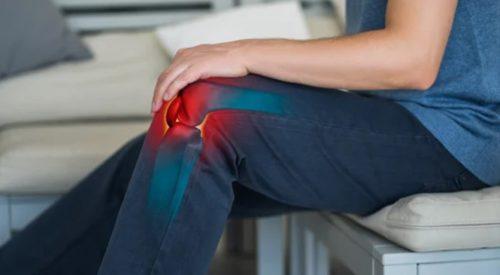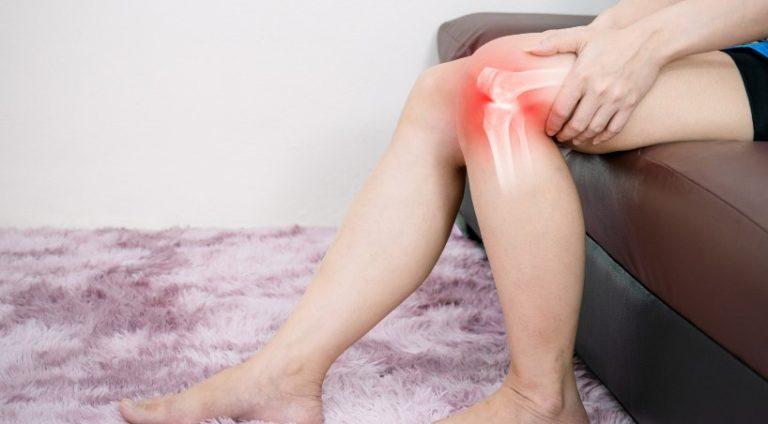Post Contents
Living with osteoarthritis can be challenging, impacting your daily life in various ways. From dealing with joint pain to navigating mobility issues, the effects of this condition are far-reaching. However, if you have osteoarthritis in the UK, there are benefits and support options available to help you manage this condition effectively and improve your quality of life. In this blog post, we will explore the benefits that individuals with osteoarthritis can claim in the UK and provide valuable tips on how to access them. Let’s dive into how these benefits can make a difference for those living with osteoarthritis!
Understanding Osteoarthritis and Its Impact on Daily Life

Osteoarthritis is a degenerative joint disease that commonly affects the knees, hips, hands, and spine. It causes pain, stiffness, and swelling in the affected joints, making everyday tasks like walking, climbing stairs, or even holding objects challenging. The impact of osteoarthritis on daily life can vary from person to person but often leads to decreased mobility and reduced quality of life.
Simple activities such as getting dressed or cooking meals may become more difficult due to joint pain and limited range of motion. As osteoarthritis progresses, it can also affect mental well-being by causing frustration and feelings of helplessness. Additionally, chronic pain can disrupt sleep patterns and lead to fatigue during the day.
Managing osteoarthritis involves a combination of medical treatments, lifestyle modifications, and support services to alleviate symptoms and improve function. Seeking timely medical intervention is crucial in slowing down the progression of the disease and enhancing one’s overall well-being.
The Importance of Seeking Medical Treatment for Osteoarthritis
When it comes to managing osteoarthritis, seeking medical treatment is crucial. Consulting with healthcare professionals can help in accurately diagnosing the condition and developing a personalized treatment plan tailored to your needs.
Medical interventions such as medication, physical therapy, and lifestyle modifications can significantly improve your quality of life by reducing pain and enhancing joint function. Early diagnosis and proactive management are key in slowing down the progression of osteoarthritis.
Ignoring symptoms or delaying treatment may lead to worsening pain, decreased mobility, and potential complications. By addressing osteoarthritis promptly under medical supervision, individuals can better cope with the challenges posed by this chronic condition.
Remember that effective management of osteoarthritis involves a holistic approach that combines medical treatments with self-care strategies like exercise and healthy living habits. Prioritizing your health today can positively impact your well-being in the long run.
What Benefits Can I Claim if I Have Osteoarthritis UK?

Living with osteoarthritis in the UK can be challenging, but it’s essential to know that there are benefits available to support individuals facing this condition. These benefits aim to provide financial assistance and aid in managing the daily struggles that come with osteoarthritis.
One crucial benefit is Disability Living Allowance (DLA) or Personal Independence Payment (PIP). These grants help cover extra costs associated with living with a disability, including mobility aids or care services. They assess your needs based on how your condition affects you, offering valuable support tailored to your specific requirements.
Employment and Support Allowance (ESA) is another vital benefit for those unable to work due to osteoarthritis. It provides financial help if you’re unable to earn a living because of your health condition, giving you peace of mind during challenging times.
Attendance Allowance (AA) is available for elderly individuals who require assistance due to their chronic illnesses like osteoarthritis. This allowance helps cover personal care needs and offers additional support for daily activities, ensuring a better quality of life despite physical limitations.
These benefits play a crucial role in alleviating some of the burdens associated with osteoarthritis, providing much-needed relief and assistance for individuals navigating life with this debilitating condition.
Disability Living Allowance (DLA) and Personal Independence Payment (PIP)
Living with osteoarthritis can present various challenges, impacting daily activities and overall quality of life. In the UK, individuals with osteoarthritis may be eligible for financial support through Disability Living Allowance (DLA) or its replacement, Personal Independence Payment (PIP).
DLA and PIP are designed to provide assistance to those who have difficulty with mobility or require help with personal care tasks due to their condition. The benefits aim to alleviate some of the financial burdens associated with managing osteoarthritis and seeking necessary support.
The application process for DLA or PIP involves providing detailed information about how osteoarthritis affects your daily life. This includes documenting any difficulties you face in areas such as walking, dressing, or carrying out essential tasks independently.
Receiving DLA or PIP can offer valuable financial assistance and access to additional support services tailored to individual needs. It is essential for individuals living with osteoarthritis in the UK to explore these benefit options and see if they qualify for assistance.
Employment and Support Allowance (ESA)

Living with osteoarthritis can present challenges, especially when it comes to maintaining employment. This is where the Employment and Support Allowance (ESA) in the UK can provide crucial financial support for those who are unable to work due to their condition.
ESA offers two types of support: income-related ESA and contribution-based ESA. Income-related ESA takes into account your income and savings, while contribution-based ESA depends on your National Insurance contributions.
To qualify for ESA, you will need a medical certificate from your doctor stating that you cannot work due to health reasons. Additionally, you will have a Work Capability Assessment to determine your eligibility for the benefit.
Receiving ESA can help alleviate some of the financial burden caused by osteoarthritis and give you peace of mind as you focus on managing your condition effectively.
Attendance Allowance (AA)
Attendance Allowance (AA) is a valuable support option for individuals in the UK living with osteoarthritis. This benefit is designed to help cover additional costs incurred due to a disability or long-term health condition, like osteoarthritis. The AA is not means-tested, meaning it is available based on the individual’s care needs rather than their income or savings.
To qualify for Attendance Allowance, you must be at least 65 years old and need help with personal care due to your osteoarthritis. The amount you receive depends on the level of care that you require, whether during the day or night. It aims to provide financial assistance to make managing daily tasks more manageable for those affected by osteoarthritis.
Applying for Attendance Allowance involves filling out a detailed form outlining your care needs and how they relate to your condition. It’s essential to provide accurate information and any supporting documents that can strengthen your application.
Receiving an Attendance Allowance can offer peace of mind and practical assistance in coping with the challenges posed by osteoarthritis.
Other Support Options for Managing Osteoarthritis

Living with osteoarthritis can present challenges in daily life, but there are various support options available to help manage the condition effectively. Physical therapy is a valuable resource for improving mobility and reducing pain associated with osteoarthritis. A trained physiotherapist can create personalized exercise programs to strengthen muscles and increase flexibility.
In addition to physical therapy, assistive devices such as braces, splints, or joint supports can provide stability and alleviate discomfort while performing daily tasks. Occupational therapy focuses on adapting activities to make them easier and less painful for individuals with osteoarthritis. This type of therapy helps patients maintain independence by teaching alternative techniques for completing tasks like dressing or cooking.
Moreover, lifestyle modifications like maintaining a healthy weight through proper nutrition and regular exercise can significantly impact the progression of osteoarthritis. Dietary supplements such as glucosamine and chondroitin may also offer some relief from joint pain and stiffness. Support groups or online forums can provide emotional support by connecting individuals facing similar challenges due to their condition.
Tips for Applying for Benefits
When applying for benefits related to osteoarthritis in the UK, it’s essential to be well-prepared. Start by gathering all necessary documentation, such as medical records, doctor’s notes, and any relevant test results that support your condition.
Take the time to thoroughly understand the eligibility criteria for each benefit you are applying for. This will help you provide accurate information and increase your chances of a successful application.
If you need assistance with the application process or have questions about specific benefits, don’t hesitate to reach out to organizations like Citizens Advice or disability advocacy groups who can offer guidance and support.
Be honest and transparent when filling out your application forms. Provide detailed information about how osteoarthritis impacts your daily life and ability to work, ensuring that assessors have a clear picture of your situation.
Stay informed about any updates or changes in benefit policies that may affect your eligibility. Keeping abreast of these developments can help you navigate the application process more effectively.
Conclusion
If you are living with osteoarthritis in the UK, it is essential to be aware of the benefits and support available to help you manage your condition and improve your quality of life. By seeking medical treatment and exploring the various benefits such as Disability Living Allowance (DLA), Personal Independence Payment (PIP), Employment and Support Allowance (ESA), Attendance Allowance (AA), and other support options, you can alleviate some of the financial burdens associated with this chronic condition.
Remember that each benefit has specific eligibility criteria, so it’s crucial to thoroughly understand them before applying. Additionally, consider seeking assistance from healthcare professionals or support organisations to navigate the application process more effectively.
Living with osteoarthritis can be challenging, but by accessing the available benefits and support services, you can better cope with the impact of this condition on your daily life. Stay informed, seek help when needed, and prioritize self-care to manage osteoarthritis successfully.


